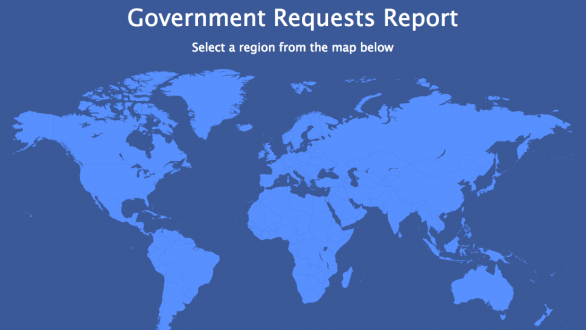Mark Zuckerberg is following his own advice.
In a Facebook post last month, he wrote the U.S. government "need[s] to be much more transparent about what [it's] doing."
Friday, Facebook released it’s second government requests report – an effort to be more transparent with users about the nature and extent of government requests it receives.
The report covers July – December 2013. Unlike the first one, Friday’s release contains information on how often a government restricted or had content removed from the site.
India is by far the worst offender. The country restricted 4,765 posts "on the grounds that [the content] violates local law."
Time explains, "Indian legislation outlaws criticizing a religion or the state, so when government officials call blasphemy, Facebook investigates and eradicates."
Turkey followed closely with about 2,000 restricted pieces of content because the country prohibits defamation or criticism of the Turkish state.
Both Germany and France had about 80 restrictions because both places have local laws prohibiting Holocaust denial.
Facebook’s General Counsel Colin Stretch writes, “Facebook’s mission is to give people the power to share, and to make the world more open and connected. Sometimes, the laws of a country interfere with that mission, by limiting what can be shared there.”
He emphasizes Facebook doesn’t take down content itself, unless it violates the company’s community standards, which prohibits what you’d expect — threats, hate speech, pornography and more.
If India rules takedowns, the U.S. owns information requests. Don’t act so surprised.
In the July - December timeframe, the U.S. government made 12,598 requests for data on almost 19,000 accounts. And Facebook complied with most of them, reporting 81.02 percent of requests produced data.
But Stretch insists the data Facebook hands over is reportedly only "basic information — such as name and IP address."
A writer for ZDNet says, "Compared to some other transparency reports, Facebook's version does offer some more concrete, specific figures." But she says, it can’t tell us everything.
Take another look at the Foreign intelligence Surveillance Act, or FISA, requests. Facebook says it's required by law to wait six months to disclose this info and even after, it can only do so in clusters of 1,000.
But it’s a solid start. Stretch writes that company will continue to advocate for transparency and "lawful" data requests. He’s looking at you, NSA.


